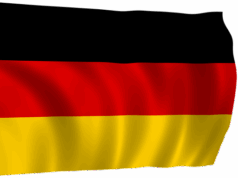
After the poison attack on the opposition politician Alexei Navalny, contradicting information about possible investigations in Russia made the rounds today. According to a media report, authorities should investigate a suspected murder.
Russia’s central investigative authority has commissioned one of its representations in Siberia to investigate the possibility of an assassination attempt on the government critic, the RIA news agency reported today.
Court: No investigation started
So far, Russia had taken the position that there was no evidence of a crime and therefore no reason for a criminal investigation. Navalny collapsed on a domestic flight in Siberia almost two weeks ago and is now being treated at the Berlin Charite. The German government is assuming a poison attack.
A Russian court today upheld the actions of the authorities, which have not yet started an investigation into the case. The judges in Moscow rejected a complaint by Navalny’s lawyer against it, as the state agency TASS reported. His application had been examined within the statutory deadline and forwarded to the responsible investigative authorities, it said.
The opposition team filed a complaint shortly after Navalny lost consciousness around two weeks ago. The police in Tomsk, Siberia, then initiated “preliminary investigations”.
EU threatens Moscow with sanctions
The EU had previously openly threatened Russia with sanctions. A statement published yesterday evening said the European Union was calling for a joint international response and reserved the right to take appropriate action. This also included sanctions.
Today, representatives of the NATO countries will also have an unscheduled meeting to discuss possible reactions to the poisoning of Navalny. There is heated debate in Germany as to whether a construction freeze for the controversial „Nord Stream 2“ gas pipeline is an option as a possible sanction. In Austria, the SPÖ and NEOS have requested a discussion with ÖVP Foreign Minister Alexander Schallenberg in the Foreign Policy Committee of the National Council.



